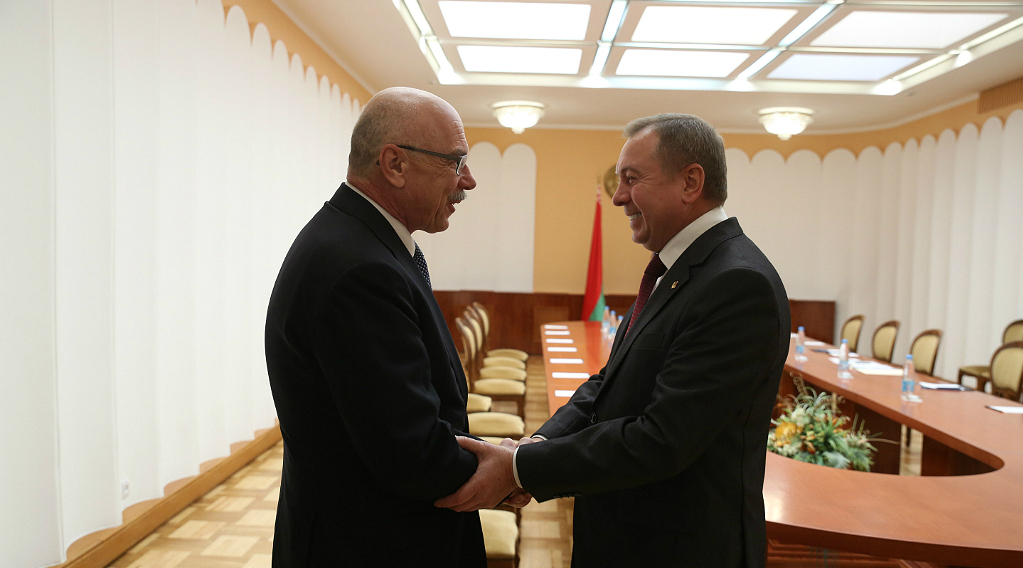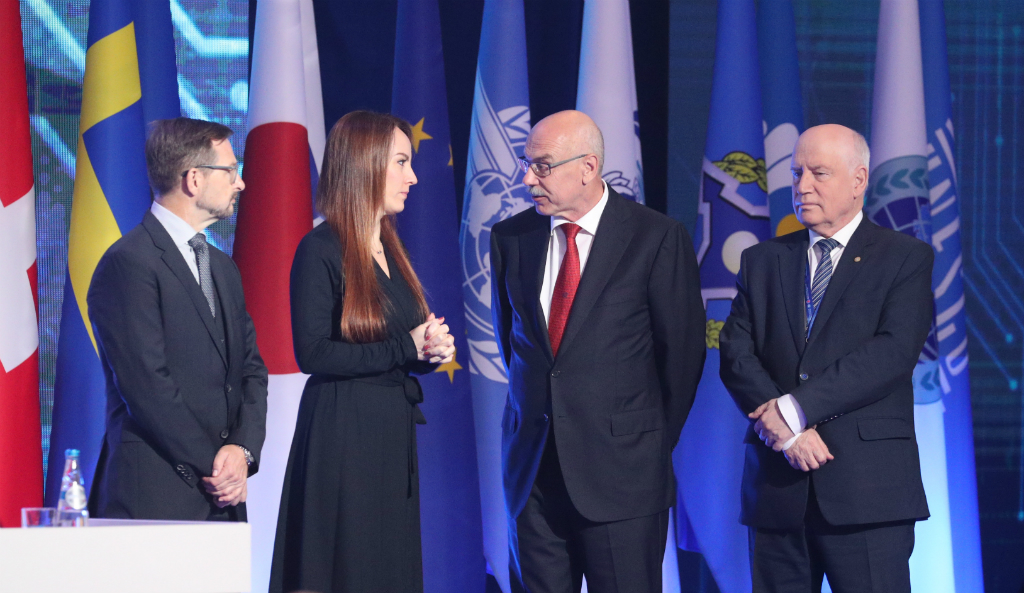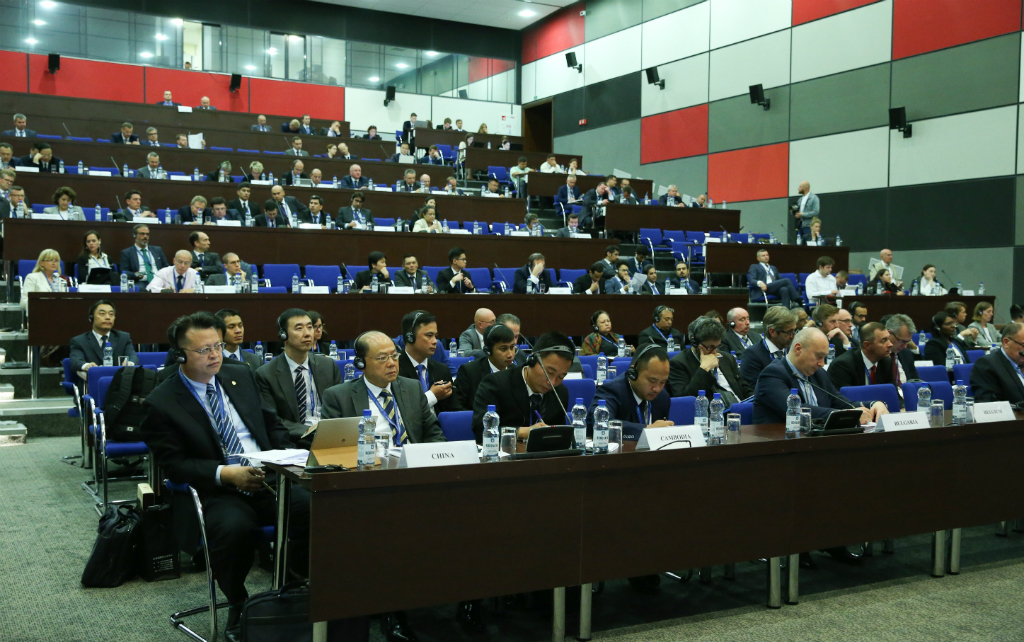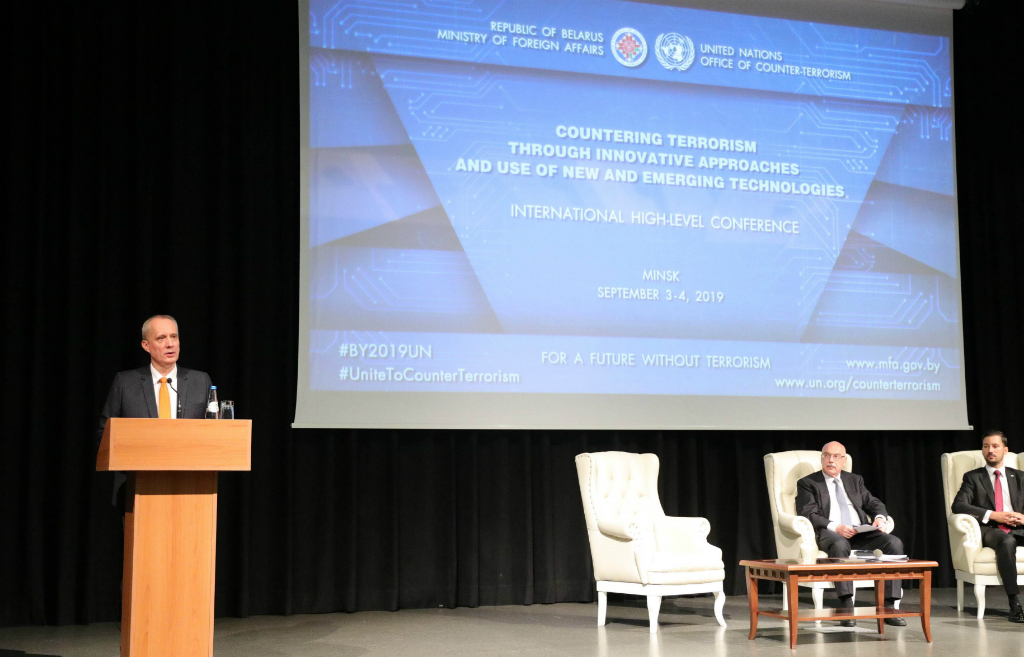Joint MFA of Belarus-UNOCT Press Release following the results of the International High-level Counter-Terrorism Conference in Minsk
04 September 201904-09-2019
The joint Belarus-UN International High-level Conference on Counter-Terrorism and the Use of New and Emerging Technologies, co-organised by the Ministry of Foreign Affairs of Belarus and the United Nations Office of Counter-Terrorism, was opened in Minsk yesterday by His Excellency Mr. Aleksandr Lukashenko, President of the Republic of Belarus, and concluded today with the adoption of a Co-Chairs’ Summary of the discussions held during its sessions.

Mr. Vladimir Makei, Minister of Foreign Affairs of Belarus and Mr. Vladimir Voronkov, United Nations Under-Secretary-General for Counter Terrorism stressed in their Summary that the conference has been a timely opportunity to take stock of the fast evolving and complex threat arising from terrorist misuse of new and emerging technologies and has helped identify innovative approaches to address these common challenges.

More than 400 conference participants, including senior officials from 55 countries, ten international and regional organizations, as well as representatives from civil society, business and academia, exchanged views on how the pace of technological and digital change has made terrorist groups more connected, more resilient and more capable than ever before.

As emerging technologies such as artificial intelligence, drones, biotechnology and 3D printing become increasingly sophisticated and accessible, terrorists are likely to try to weaponise them to carry out deadly attacks. Additionally, they use the Internet and social media to spread their poisonous narratives, radicalise and recruit new followers, raise funds, and plan attacks.

The Co-Chairs’ Summary stresses that “there is an urgent need to strengthen international cooperation to tackle terrorist abuse of new technologies and to share innovative approaches to counter this threat.” Furthermore, it urges the international community to take a multi-stakeholder approach, work together to consider future terrorist threats, and ensure the protection of human rights and fundamental freedoms when addressing them. Lastly, the Summary notes that “this conference has confirmed that the United Nations has a crucial role to play to assist [Member States’] efforts to counter terrorism through innovative approaches and the use of new and emerging technologies.”

The Summary ends up with a call to turn into concrete action the international community’s commitment to address these threats, and deliver on the promise of harnessing technological advances for the common good and the realization of the United Nations Agenda 2030.
The conference was the fourth in a series of regional conferences providing Member States with a platform to exchange information, expertise and resources, develop partnerships, and collectively address a range of critical counter-terrorism issues. Throughout 2019 and 2020 Member States are organizing these conferences to address common regional challenges as a follow-up to the High-level Conference of Heads of Counter-Terrorism Agencies of Member States that took place in New York in June 2018. The outcomes and recommendations of the Belarus and other regional conferences will feed into the second High-level Conference of Heads of Counter-Terrorism Agencies of Member States, which will take place in New York in July 2020.
русская версия беларуская версія
Official Internet Resources
President of the Republic of Belarus
www.president.gov.byCouncil of Ministers of the Republic of Belarus
www.government.gov.byCouncil of the Republic
www.sovrep.gov.byHouse of Representatives
www.house.gov.byNational Agency of Investment and Privatization
www.investinbelarus.byInternational ICT Forum TIBO 2022
www.tibo.byNational Center of Legislation and Legal Information
www.center.gov.byNational Tourism Agency
www.belarustourism.byInformation export support website Export.by
www.export.byBelarusian Universal Commodity Exchange
www.butb.byBelarusian Chamber of Commerce and Industry
www.cci.byOfficial website of the Republic od Belarus
www.belarus.byBelarus TV
www.tvr.byRadio Belarus International
www.radiobelarus.byDipservice
www.dipservice.byBusiness network TradeBel
www.tradebel.comNational Academy of Science of Belarus
www.nasb.gov.byMinistry of Education of the Republic of Belarus
www.edu.gov.byMinistry of Natural Resources of the Republic of Belarus
www.minpriroda.gov.byMinistry of Health of the Republic of Belarus
www.minzdrav.gov.byMinistry of Economy of the Republic of Belarus
www.economy.gov.by






